Are Yorkies hypoallergenic? The Yorkshire terrier is a small dog breed that is known for being hypoallergenic. This means that they are less likely to cause an allergic reaction in people who suffer from allergies. While all dogs produce some amount of dander, Yorkies are considered to be one of the least allergenic breeds available. If you are considering purchasing a Yorkie and you suffer from allergies, it is important to do your research to make sure this breed is the best choice for you.
The Yorkies’s history and Overview
A Yorkshire Terrier, or “Yorkie” as they are affectionately called, is a small breed of terrier that originated in England. They were originally bred to hunt rats and other vermin in textile mills and coal mines. Yorkies quickly became popular companion animals, and their popularity has only grown in recent years. Today, they are one of the most popular breeds in the United States.
While Yorkies are now considered to be one of the most fashionable dog breeds, they were not always so popular. In fact, during the early years of their existence, they were actually quite unpopular. This is because they were considered to be “bad luck” by many people. This is because they were often used in rat-baiting, which was a popular sport during that time.
Thankfully, times have changed and Yorkies are now one of the most loved and popular breeds around. They are known for their playful personalities and their hypoallergenic coats. If you are considering adding a Yorkie to your family, there are a few things you should know about this breed.
Size
One of the most appealing things about Yorkies is their small size. They typically weigh between 4 and 7 pounds and stand between 8 and 9 inches tall at the shoulder. This makes them one of the smallest breeds of dogs in existence. While their small size is part of their appeal, it also means that they are not well-suited for families with small children. This is because they can easily be injured by rough play.
Coat
Yorkies have a long, silky coat that does not shed. This makes them an ideal choice for people who suffer from allergies. The coat is typically black and tan, but it can also be blue and tan or even gold. Yorkies require regular grooming to keep their coat healthy and free of tangles.
Temperament
Yorkies are known for being playful, energetic, and affectionate. They are also very intelligent and easily trained. However, they can also be quite stubborn and Yorkies are not recommended for first-time dog owners. This is because they require patience and consistency when it comes to training.
Health
Yorkies are generally a healthy breed, but there are some health conditions to be aware of. These include patellar luxation, tracheal collapse, and von Willebrand’s disease. Yorkies are also prone to dental problems, so it is important to brush their teeth regularly.
If you are looking for a small, hypoallergenic breed that is fun-loving and affectionate, the Yorkshire terrier may be the perfect dog for you. Just be sure to do your research and make sure this breed is the right fit for your family before making the commitment.
What are Dog Allergies?
Dog allergies are one of the most common types of allergies in the world. It is estimated that up to 15% of the population is allergic to dogs. Dog allergies are caused by a protein found in a dog’s saliva, urine, and dander. When this protein comes into contact with a person’s skin, it can cause a reaction. Symptoms of a dog allergy include itching, redness, and swelling. In severe cases, a person may experience difficulty breathing or anaphylaxis.
What Makes a Dog Breed Hypoallergenic?
There is no scientific definition for the term “hypoallergenic,” but it generally refers to dogs that produce fewer allergens than other breeds. Allergens are proteins found in a dog’s skin, saliva, and urine. They can cause allergic reactions in people who are sensitive to them.
Some people believe that hypoallergenic dogs are less likely to cause allergies, but there is no scientific evidence to support this claim. However, some hypoallergenic breeds may be better suited for people with allergies than others.
There are many factors that can contribute to a dog’s allergen level, including its coat type, skin type, and how much it sheds. For example, dogs with double coats (such as poodles and bichon frises) tend to produce fewer allergens than those with single coats (such as Labrador retrievers and golden retrievers).
Dogs that don’t shed much may also be less likely to trigger allergies. Breeds in this category include the maltese, poodle, bichon frise, and Yorkshire terrier.
If you’re allergic to dogs but would like to own one, there are a few things you can do to reduce your chances of having a reaction. First, choose a hypoallergenic breed that is less likely to trigger your allergies. Then, have your dog groomed regularly to remove any allergens that may be trapped in its coat. Finally, consider using an air purifier in your home to help reduce the overall level of allergens in the air.
While there’s no guarantee that a hypoallergenic dog will be completely allergy-free, taking these precautions can help you enjoy a furry friend without suffering from sneezing, watery eyes, and other bothersome symptoms.
Are Yorkies hypoallergenic?
Are Yorkies hypoallergenic? Yes, Yorkies are considered hypoallergenic because they have a coat that does not shed or produce as much dander as other breeds. This means that they are less likely to trigger an allergic reaction in people who are allergic to dogs. If you have allergies, it is important to do your research before choosing a dog breed. While there is no such thing as a completely hypoallergenic breed, there are some breeds that are less likely to trigger an allergic reaction. The Yorkshire terrier, the Maltese, the poodle, and the bichon frise are all good choices for people with allergies.
Should someone with pet allergies get a Yorkie?
If you have pet allergies, you may be wondering if you should get a Yorkie. While Yorkies are considered hypoallergenic, this does not mean that they are completely allergy-free. Allergies vary from person to person, so you will need to decide if the benefits of owning a Yorkie outweigh the risks of having an allergic reaction. If you do decide to get a Yorkie, there are a few things you can do to reduce your chances of having an allergic reaction, such as regularly grooming your dog and using an air purifier in your home.
How to Reduce the Risk of Allergic Reaction
There are a few things you can do to reduce the risk of having an allergic reaction to your Yorkie. First, make sure to bathe and groom your dog on a regular basis. This will help to remove any allergens that may be present in their fur. Second, try to keep your dog out of your bedroom and other areas where you spend a lot of time. Finally, consider using an air purifier in your home to help remove any allergens from the air.
While Yorkies are a great breed of dog, they are not right for everyone. If you have allergies, it is important to do your research and make sure this breed is a good fit for you before making the commitment.
Some tips for reducing your risk of an allergic reaction to a Yorkies include:
- Wash your hands thoroughly after handling your Yorkie, especially before eating
As mentioned above, you can become allergic to dogs if you come into contact with their skin, saliva, and fur . If you have a Yorkie, you’re probably in close contact with them often. It’s important to wash your hands thoroughly after handling your dog, especially before eating.
There are a few reasons for this. First of all, you don’t want to transfer any bacteria or viruses from your dog to your food. Secondly, if you’re allergic to dogs, you can have a reaction if you come into contact with their saliva or fur. Even if you’re not allergic, it’s still important to wash your hands after handling your dog.
If you don’t have access to soap and water, hand sanitizer will also work. Just make sure to use an alcohol-based sanitizer that contains at least 60% alcohol.
Some people are more likely to develop an allergy to dogs than others. If you have a family history of allergies, you may be more likely to be allergic to dogs yourself. People with other allergies, such as hay fever or asthma, are also more likely to be allergic to dogs. If you’re not sure whether or not you’re allergic to dogs, it’s a good idea to see a doctor before getting one.
- Avoid kissing your Yorkie on the mouth
When you kiss your dog on the mouth, you are essentially exposed to all of the bacteria and allergens that they have been in contact with. This includes anything they may have eaten or drank, as well as anything they may have come into contact with while outdoors.
Additionally, a dog’s mouth is not as clean as a human’s mouth. A dog’s saliva contains more bacteria than ours does, which can lead to infection if it enters an open wound.
So, to avoid becoming allergic to dogs, or developing an infection, it is best to avoid kissing them on the mouth.
- Be cautious of sharing food with your Yorkie
As mentioned above, you can become allergic to dogs if you come into contact with their saliva, skin or dander. If you have a Yorkie, it’s important to be aware that their small size means they often have a higher concentration of these allergens. For this reason, it’s generally advised that people with allergies avoid sharing food with their Yorkie. It’s also worth noting that some people may not realize they’re allergic to dogs until they come into contact with one, so it’s always best to err on the side of caution.
There are a few other reasons why you may not want to share food with your Yorkie. First, many human foods are actually toxic to dogs. For example, chocolate and grapes are both poisonous to dogs and can cause serious illness or even death. So, it’s best to avoid giving your Yorkie any food that you’re not sure is safe for them.
Second, even if a food is safe for dogs, they may still have trouble digesting it. This is because their digestive system is different from ours and they are unable to process certain foods the same way we can. As a result, they may experience stomach upset or even diarrhea if they eat something that doesn’t agree with them.
Finally, it’s important to remember that dogs are carnivores and their diet should reflect this. While they can technically eat plant-based foods, they are not designed to do so and it is not an optimal way for them to get the nutrients they need. Feeding your Yorkie a diet that is too high in carbohydrates can lead to problems like obesity and diabetes, so it’s best to stick to dog food that is specifically designed for their nutritional needs.
- Make sure your Yorkie is up to date on its vaccinations
As a responsible pet owner, it’s important to make sure your Yorkie is up to date on its vaccinations. Vaccinations help protect your dog from a variety of deadly diseases, including rabies, parvovirus, and distemper. They also help reduce the spread of these diseases to other dogs and humans.
There are a number of reasons to keep your Yorkie vaccinated. First, it’s the law in many states. In some states, you can be fined or even put in jail if your dog is not vaccinated against rabies and it bites someone. Second, vaccinations help protect your dog from deadly diseases. third, they also help reduce the spread of these diseases to other dogs and humans. Finally, many veterinarians require that dogs be up to date on their vaccinations before they will see them.
So, as you can see, there are a lot of good reasons to make sure your Yorkie is up to date on its vaccinations. It’s the responsible thing to do for your pet and for the community.
- Keep your home clean by vacuum regularly and dusting with a damp cloth.
There are a few key reasons why you should keep your home clean, even if you don’t suffer from allergies. First, it’s important to vacuum regularly to remove dust, dirt, and other debris from your floors and surfaces. This will help reduce the amount of allergens in your home and make it easier to keep things clean. Dusting with a damp cloth is also effective for removing allergens from surfaces. In addition, keeping your home clean can also help reduce the risk of other health problems, such as colds and flu. Finally, it’s simply more pleasant to live in a clean and orderly home. Overall, the benefits of keeping your home clean far outweigh any negatives.
- Consider using an air purifier in your home.
If you’re among the millions of Americans with allergies, you know how much they can affect your quality of life. Allergies can cause everything from sneezing and a runny nose to fatigue, headaches and difficulty breathing. And if you have asthma, allergies can trigger attacks that make it hard to catch your breath.
There’s no cure for allergies, but there are treatments that can help make them more manageable. One option is using an air purifier in your home to remove allergens from the air.
Air purifiers work by drawing in air and passing it through a series of filters that trap allergens like dust, pollen, pet dander and mold spores. Some air purifiers also emit negative ions, which attach to allergens and cause them to fall out of the air.
Using an air purifier can help reduce the amount of allergens in your home, which may help you feel more comfortable and breathe easier. If you have asthma, using an air purifier may also help reduce the number of asthma attacks you have.
When shopping for an air purifier, look for one that’s certified by the Asthma and Allergy Foundation of America (AAFA). This certification means the purifier has been tested and proven to effectively remove allergens from the air.
If you suffer from allergies, using an air purifier in your home can help reduce your symptoms and make it easier to breathe. Choose an air purifier that’s certified by the AAFA to ensure it will effectively remove allergens from the air.
Are Yorkies shedding?
Do Yorkshire Terriers shed? Yes, Yorkies do shed. They are a relatively low-shedding breed, Although they don’t shed as much as other dog breeds, you will still find hair around your home. You can help reduce the amount of shedding by brushing your dog regularly and keeping its coat well-groomed. Yorkies are also prone to tangles and mats, so it’s important to brush their coat regularly to prevent these from forming.
How to manage Yorkies shedding?
To help manage Yorkies shedding, start by brushing them regularly with a dog brush or comb. This will help to remove any loose hair and also help to distribute their natural oils throughout their coat. You can also try using a shedding shampoo or conditioner specifically designed for dogs that shed a lot. Be sure to follow the directions on the product label carefully.
In addition, try to keep your Yorkie’s coat healthy by feeding them a high quality diet and making sure they get plenty of exercise. Finally, if all else fails, you may need to consult with a professional groomer or veterinarian about other possible solutions for dealing with Yorkie shedding. Finally, make sure to vacuum regularly and dust your home to remove any loose hair.
To avoid or lessen the amount of Yorkie hair around your home, regular grooming is necessary. Here are some tips on how to groom your Yorkshire Terrier:
- Brushing
Brushing is the most important part of a Yorkie’s grooming regime. It helps to remove dead hair, distribute natural oils and avoid mats and tangles. Yorkshire Terriers should be brushed every day, using a slicker brush, bristle brush or comb.
Start by brushing the head and working your way down the body. Be extra careful around the ears and eyes. Finish by brushing the legs and feet.
- Bathing
Bathe your Yorkie only when necessary, using a mild dog shampoo. Over-bathing can dry out their skin and coat.
- Ear care
Check your Yorkie’s ears regularly and clean them if necessary. This will help to prevent infection.
- Nail care
Trim your Yorkie’s nails regularly using a nail clipper designed for dogs. Be careful not to cut the quick (the blood vessel in the nail).
- Teeth
Brush your Yorkie’s teeth at least once a week, using a dog toothbrush and toothpaste. This will help to prevent gum disease and bad breath.
By following these tips, you can help to keep your Yorkshire Terrier healthy and looking their best.
How to groom a Yorkie?
Start by brushing your dog’s fur with a dog brush or comb. This will help to remove any loose hair and also help to distribute their natural oils throughout their coat. You can also try using a shedding shampoo or conditioner specifically designed for dogs that shed a lot. Be sure to follow the directions on the product label carefully.
In addition, try to keep your Yorkie’s coat healthy by feeding them a high quality diet and making sure they get plenty of exercise. Finally, if all else fails, you may need to consult with a professional groomer or veterinarian about other possible solutions for dealing with Yorkie shedding. Finally, make sure to vacuum regularly and dust your home to remove any loose hair.
- Start with the head and work your way down- use a damp cloth to wipe around the face and eyes. Gently remove any dirt or debris from the coat. Use a small brush or comb to work through the coat, paying special attention to any knots or tangles.
- Next, move on to the body. Again, use a damp cloth to wipe down the fur. Be sure to get under the belly and behind the legs, where dirt and debris can often hide. Use a brush or comb to work through the coat, being careful not to pull too hard on any knots or tangles.
- Finally, move on to the feet and legs. Use a damp cloth to wipe down the fur and remove any dirt or debris. Use a small brush or comb to work through the coat, being careful not to pull too hard on any knots or tangles.
- Once you’ve finished grooming your Yorkie, use a soft cloth to dry off any areas that are wet or damp. Be sure to brush through the coat one last time to remove any loose hair.
What tools should I use to groom my Yorkies?
To keep your Yorkies looking their best, you will need to invest in a few key grooming tools. First, you will need a quality shampoo and conditioner specifically made for dogs. You should also consider investing in a good brush, comb, and scissors. A slicker brush is a good option for brushing your dog’s fur, and a comb can help to remove any tangles. Scissors can be used to trim your dog’s fur if necessary. Finally, you should have some cotton balls on hand to clean your dog’s ears.
Pros and Cons of Having a Yorkie
Yorkie dogs are intelligent and alert, making them great watchdogs. They are also very devoted to their owners and make excellent companion animals. On the downside, Yorkies can be quite yappy and territorial, and may not do well with young children in the home. They also require a good deal of grooming to keep their coat looking its best.
Pros:
-Intelligent and alert, great watchdogs
-Very devoted to their owners
-Excellent companion animals
Cons:
-Can be quite yappy and territorial
-May not do well with young children in the home
-Requires a good deal of grooming to keep coat looking its best
Things to consider
How many puppies do a yorkie have?
A Yorkshire Terrier will typically have a litter of two to five puppies. However, some litters may be as large as ten puppies. Smaller litters are more common in toy breeds like the Yorkie. Some factors that can affect litter size include the age and health of the mother, as well as the father’s breed. Litters of two to three puppies are considered average for the Yorkshire Terrier.
How many Yorkie breeds are there?
There are two main types of Yorkshire Terrier: the American Yorkie and the English Yorkie. The American Yorkie is slightly larger than the English Yorkie, with a more rectangular body shape. The coat of the American Yorkie is also longer, with a silky texture. The English Yorkie has a more compact body and a softer, finer coat. Both types of Yorkshire Terrier make excellent companion animals.
Which breed I should choose?
When choosing a Yorkshire Terrier, it is important to consider your lifestyle and needs. If you are looking for a small dog that is easy to groom, the English Yorkie may be a good option. If you prefer a slightly larger dog with a silky coat, the American Yorkie may be a better choice. Ultimately, the best breed for you will be the one that best suits your lifestyle and needs.
So, there you have it- some things to consider if you are thinking about getting a Yorkshire Terrier. Yorkies are intelligent, devoted dogs that make great companions. However, they do require some grooming to keep their coat looking its best. They may also not do well with young children in the home. If you think a Yorkie would be a good fit for your family, be sure to do some additional research to make sure this breed is right for you.
FAQs
How much is a teacup yorkie?
The average cost of a teacup Yorkie is $600. However, the exact price will vary depending on factors such as the breeder, the dog’s coat color, and whether or not the dog has any championship bloodlines.
What are Yorkies sizes?
The Yorkshire Terrier comes in two sizes: Standard and Toy. Standard Yorkies weigh between 7 and 9 pounds, while Toy Yorkies weigh between 4 and 6 pounds.
How long do teacup Yorkies live?
The average lifespan of a teacup Yorkie is 12 to 15 years. However, some individual dogs may live even longer.
What were Yorkies bred for?
Yorkies were originally bred to hunt rats and other small rodents in textile mills. They were also used as watchdogs, as their small size made them good at sneaking up on intruders.
What is Yorkshire Terrier’s temperament?
Yorkies are typically very active and playful dogs. They are also very intelligent and can be easy to train. However, they can also be stubborn and Yorkies have been known to bark excessively.
Do all Yorkies bark a lot?
No, not all Yorkies bark a lot. Some individual dogs may be more vocal than others, but there is no guarantee that a Yorkie will bark excessively.
How much exercise does a Yorkshire Terrier need?
Yorkies are relatively active dogs and they need at least 30 minutes of exercise per day. However, they can also be prone to obesity, so it is important to make sure they are not overfed.
How much is a Yorkshire terrier?
The average cost of a Yorkshire Terrier is $1,200. However, the exact price will vary depending on factors such as the breeder, the dog’s coat color, and whether or not the dog has any championship bloodlines.
Do Yorkie good with kids?
Yes, Yorkies can be good with kids if they are properly socialized. However, because of their small size, they may not be the best option for families with very young children.
Conclusion
Are Yorkies hypoallergenic? Yorkies may be hypoallergenic for some people, but there is no guarantee. If you are considering a Yorkshire Terrier as a pet and have allergies, it is best to visit a breeder or shelter and spend time with the dog before making your final decision. Remember that all dogs produce dander, which can cause reactions in people who are allergic to them. So if you do get a Yorkie, take precautions such as frequent vacuuming and keeping your dog groomed regularly to minimize allergens.
Thanks for reading!

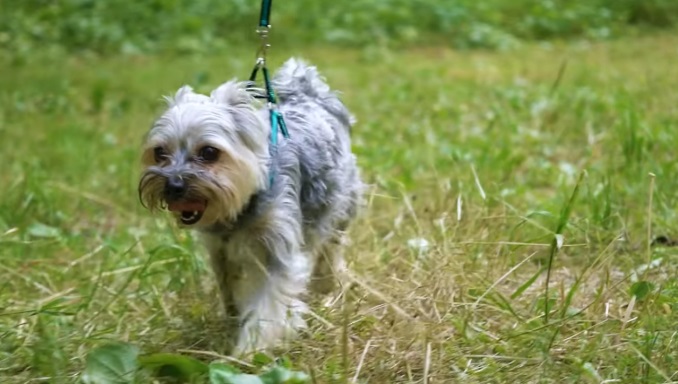
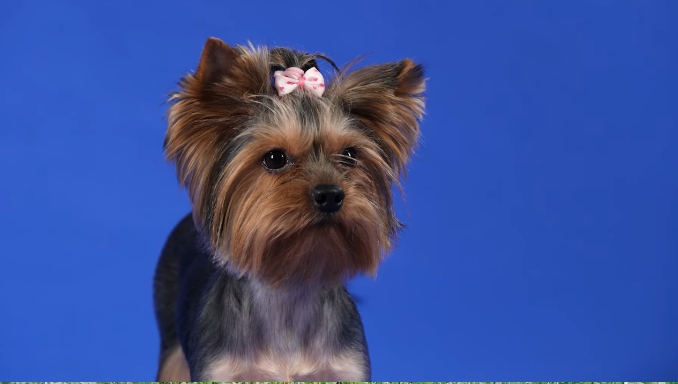
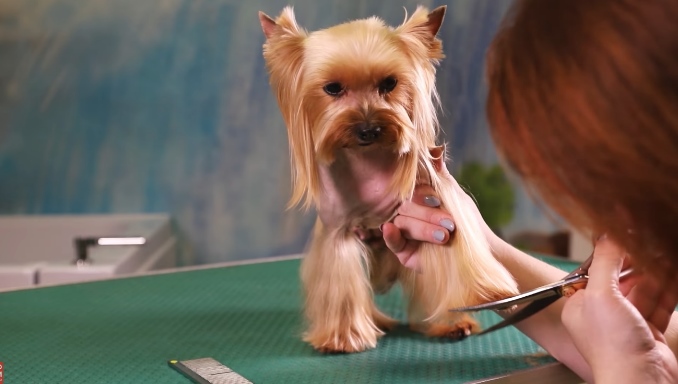
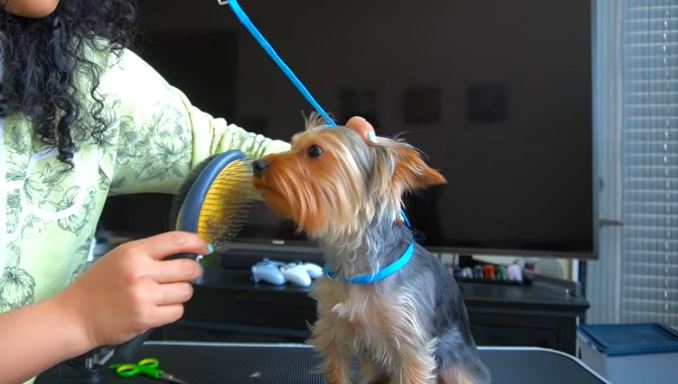
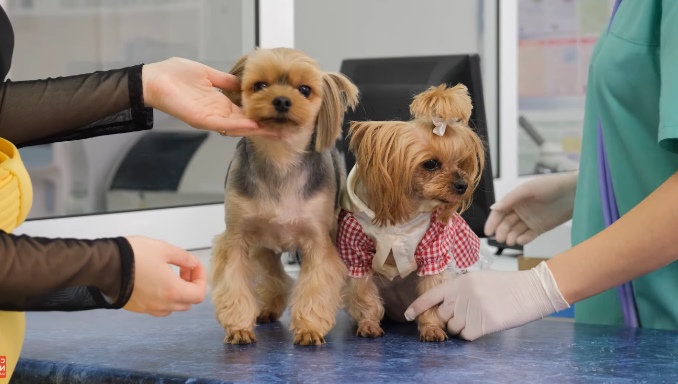








Your point of view caught my eye and was very interesting. Thanks. I have a question for you.
Can you be more specific about the content of your article? After reading it, I still have some doubts. Hope you can help me.